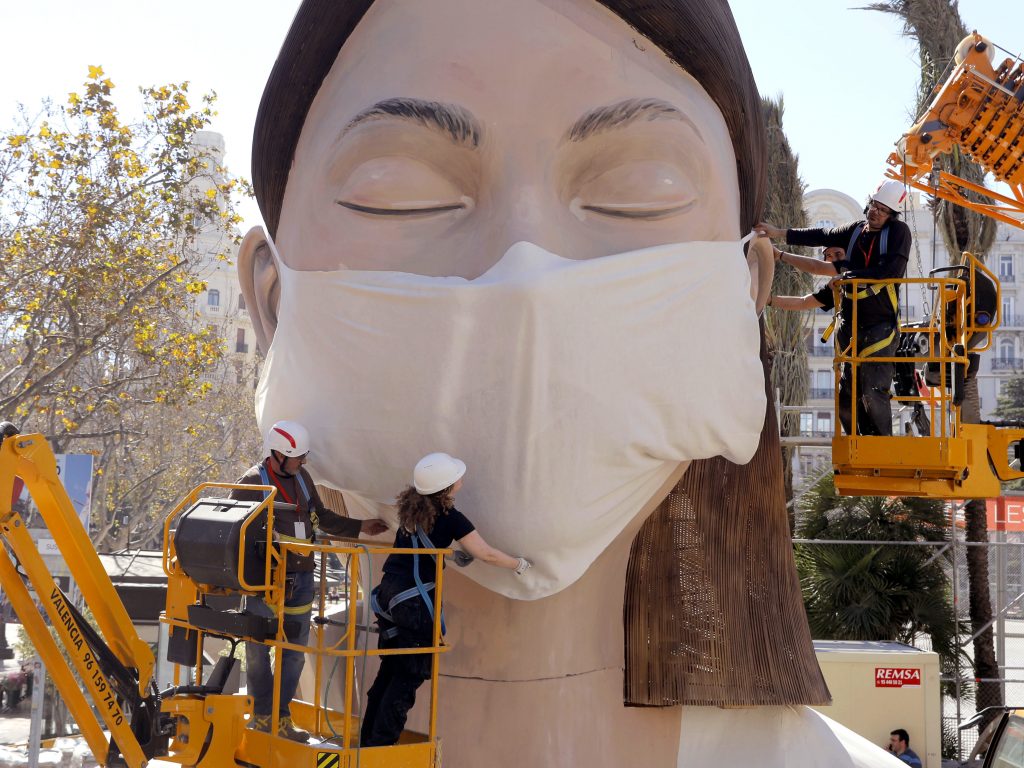Virendra Pandit
New Delhi: In what the WHO termed a “monumental moment”, the US has accepted India and South Africa’s October 2020 proposal at the WTO for a temporary waiver on vaccine patents, a far-reaching decision that could potentially prompt many countries to manufacture vaccines and accelerate the ongoing global vaccination program against the Covid-19 pandemic.
The previous Trump administration had opposed such a move, supported by more than 100 countries amid the outbreak of Covid-19 last year.
The World Health Organization (WHO), and several countries, including India, have welcomed the move. Some in the G-7 countries had also backed sharing vaccine know-how. The waiver will reduce the cost of vaccines substantially and enable free flow of medicines, easy technology transfer across the world.
US President Joe Biden’s administration supported waiving the Trade-Related Aspects of Intellectual Property Rights (TRIPS) on Covid-19 vaccines, according to media reports on Thursday.
Amid mounting pressure, the White House had earlier stated it will do whatever is best to end the pandemic. “We are going to do what is in the best interest of ending the pandemic. We are already engaged in steps to increase vaccine production,” said White House deputy press secretary Karine Jean-Pierre.
US trade representative Katherine Tai made her government’s position clear on Wednesday amid World Trade Organisation (WTO) talks over easing global trade rules to enable more countries to produce life-saving vaccines.
“The administration believes strongly in intellectual property protections, but in service of ending this pandemic, supports the waiver of those protections for Covid-19 vaccines,” Tai said in the statement, adding “This is a global health crisis and the extraordinary circumstances of the Covid-19 pandemic call for extraordinary measures.”
But she cautioned that it would take time to reach the required global “consensus” to waive the protections under WTO rules, and US officials said it would not have an immediate effect on the global supply of Covid-19 shots.
Tai had earlier held meetings with CEOs of several vaccine manufacturing companies, including Moderna and Pfizer, on the TRIPS waiver issue.
Wealthy countries like the US and UK as well as the European Union had opposed the proposal to waive TRIPS, saying it would stifle innovation at pharmaceutical companies by robbing them of the incentive to make huge investments in research and development.
This would be especially counterproductive during the current pandemic which needs the drug-makers to remain on their toes to deal with a mutating virus, they argued, media reports said.
Welcoming the US decision to back intellectual property waivers for coronavirus vaccines, WHO Executive Director Tedros Adhanom Ghebreyesus called it a “monumental moment” and commended the Biden administration’s decision as an example of “leadership to address global health challenges”.
“Now let’s all move together swiftly, in solidarity, building on the ingenuity & commitment of scientists who produced life-saving #COVID19 vaccines,” Tedros tweeted.
US President Joe Biden, who had supported the waiver in 2020, was under increased pressure, including from his Democratic Party, to back a World Trade Organization (WTO) proposal to waive the patents. It was necessary as it would allow more countries to manufacture the much-needed Covid-19 jabs, in the face of growing calls to do more to support global vaccine equity and share the country’s vaccine supply with other hard-hit nations.
Tai said Washington would engage in negotiations with the WTO on the waivers. “Those negotiations will take time given the consensus-based nature of the institution and the complexity of the issues involved.”
Dozens of countries, as well as human rights groups, former world leaders, and public health experts, had also called for the patent waiver in recent weeks amid a Covid-19 surge in several countries.
Medecins sans Frontieres (MSF), one of the groups calling for the waiver, applauded the US decision and said “It is crucial that this waiver not just apply to preventative vaccines, but it should also cover other medical tools for Covid-19, including treatments for people who fall ill and diagnostics to help curb the spread, as originally proposed seven months ago.”
The US decision had an immediate impact on the rich nations.
Early on Thursday, European Commission President Ursula von der Leyen said the European Union is willing “to discuss any proposals that address the crisis in an effective and pragmatic manner”.
“That’s why we are ready to discuss how the US proposal for a waiver on intellectual property protections for Covid-19 vaccines could help achieve that objective,” she said in a speech to the European University Institute in Florence.
Others also welcomed the Biden administration’s move, with British Labour Party MP Bell Ribeiro-Addy urging the UK government “to get behind an IP waiver to speed up vaccine rollout in low-income countries and limit the chance of new variants emerging”.
The International Federation of Pharmaceutical Manufacturers and Associations (IFPMA), however, said waiving patents on COVID-19 vaccines was “the wrong answer” to a complex problem and called for more technology transfer agreements, media reported.
“Waiving patents of Covid-19 vaccines will not increase production nor provide practical solutions needed to battle this global health crisis. On the contrary, it is likely to lead to disruption,” the IFPMA, which represents research-based pharmaceutical companies, said in a statement.

